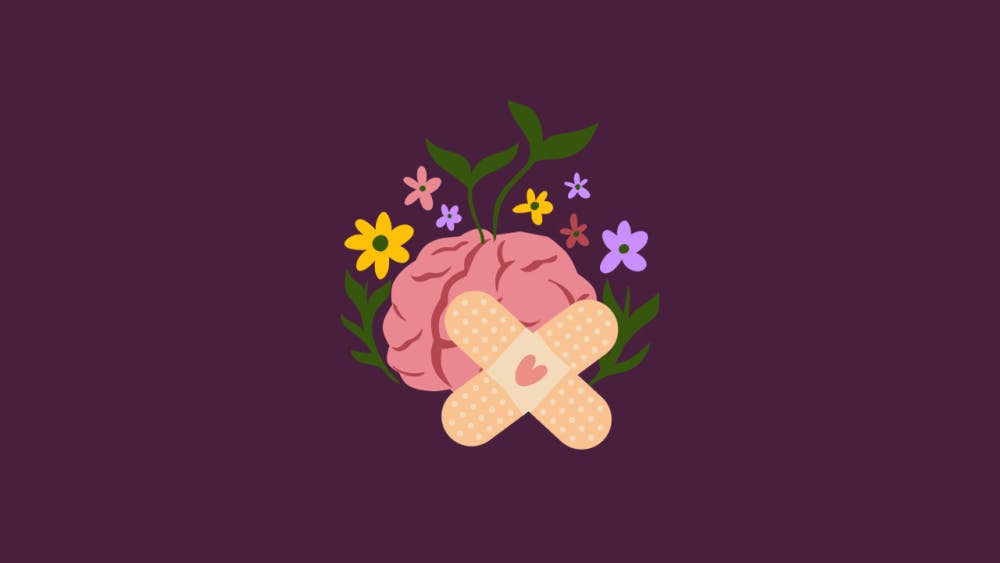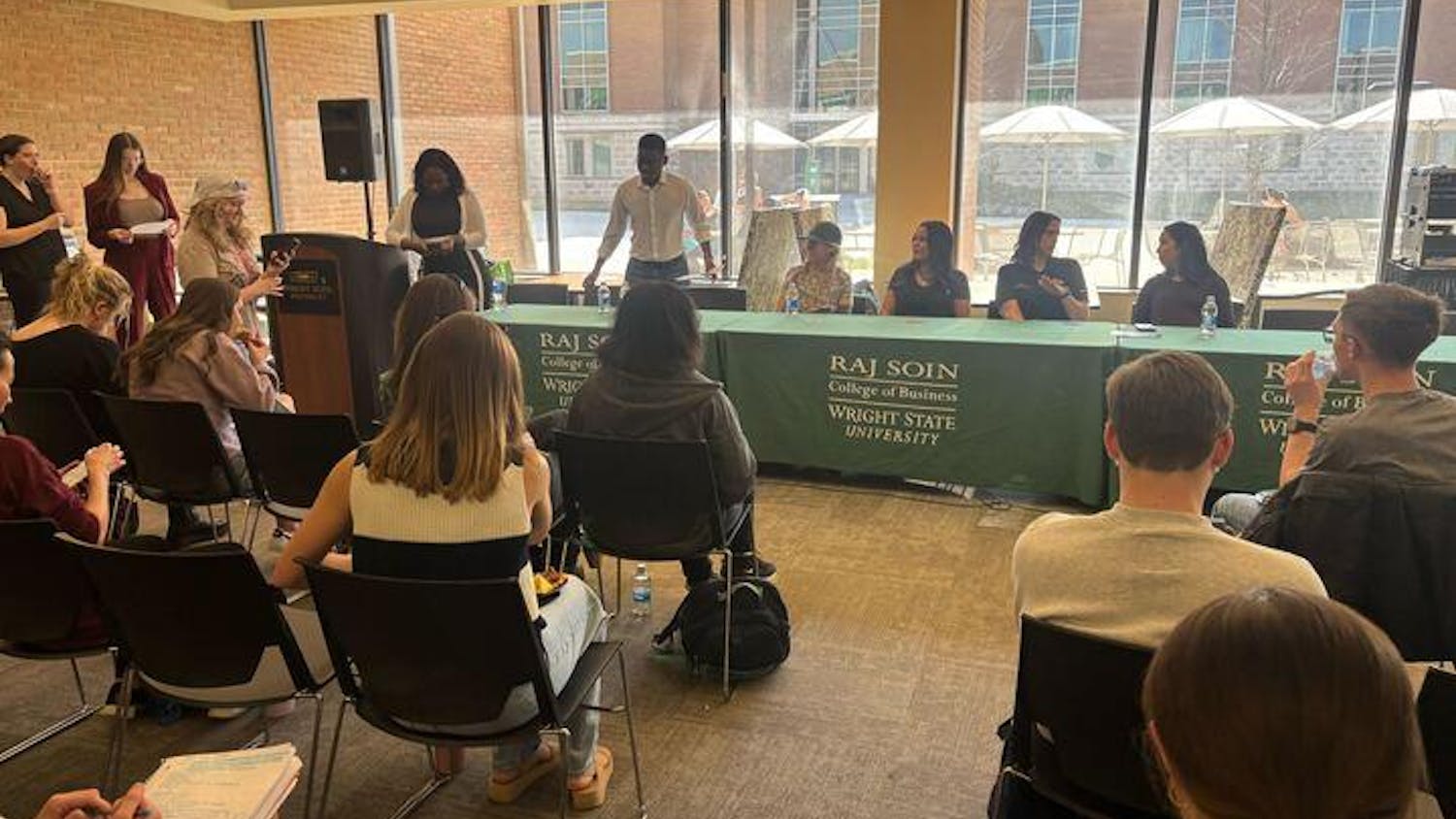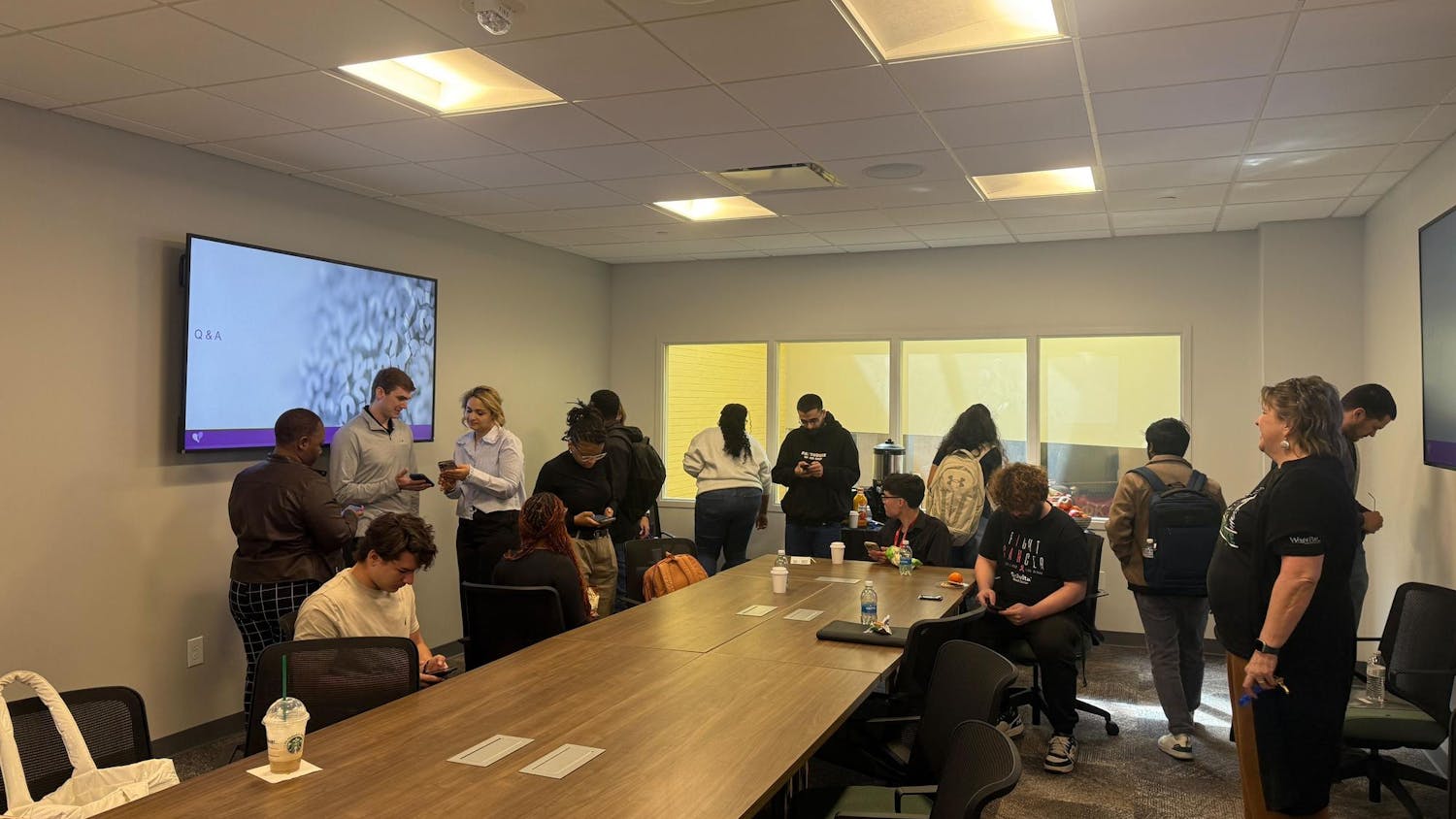Mental Health Matters | Graphic by Monica Brutto | The Wright State Guardian
Mental health is not a short-term problem with short-term solutions. The Wright State community discusses student needs, mental health resources and where we need to go from here.
The problem
According to a 2022 study in the Journal of Affective Disorders, over 60% of college students met criteria for at least one mental health problem. This study was based on a Healthy Minds Study—the same survey sent to Wright State students on Oct. 2—that was sent to 373 campuses between 2013 and 2021.
What makes us think this number has changed for the better? Since 2020, there has been a global pandemic, mounting climate change disasters, increased poverty levels, rising food insecurity and other worldwide crises on top of the daily stressors of human life.
The Mayo Clinic provides reasons why college students struggle with mental health, including pressure to succeed, cost of education, busy schedules and a lack of access to services that might help. These stressors heighten exposure to risk factors that lead to depression, including drug or alcohol abuse, extreme mood swings and other such self-destructive acts.
Mental health initiatives at Wright State
Destinee Biesemeyer, the director of the Student Advocacy and Wellness Center at WSU, explained that their offices provide case managers to help students who are struggling personally or academically find the best campus resources.
“In our role, we might not be dealing with the diagnosis of anxiety or depression, but we are dealing with all the other elements that are impacted for people who are experiencing mental health challenges,” Biesemeyer said.
As a member of the mental health task force and sub-committee for co-curricular planning, Biesemeyer and her team have been mapping out times in the academic year when students experience higher levels of stress and symptoms of depression or anxiety. This group’s hope is to refine long-term programming to be preventative and responsive once stressors escalate for students.
One of the task force’s initiatives is Raider Resilience Week. From Oct. 2 to Oct. 10, the university offered workshops and activities dedicated to mental wellbeing and self care.
“My hope was that a lot of the initiatives that we're putting forward help get people a bit more comfortable utilizing some of these resources, a little more comfortable talking about mental health so that they can learn some skills,” Biesemeyer said.
Dr. Huma Bashir, co-director for Counseling and Wellness Services, explained that there are currently five psychiatrists working for the psychiatry services that have been reinstated. There is one full-time therapist and three School of Professional Psychology interns, with four other interns from social work and clinical mental health counseling.
"These are exciting times. We are trying to build a culture of care, which is what the provost and university want," Bashir said.
Student concerns and experiences
At the Sept. 19 SGA meeting, university Provost Amy Thompson clarified that there is no unmet need at CWS. For students like Alex Stone, a lack of waitlist does not equate to a lack of problems.
“It matters if students feel like they can go to CWS for help,” Stone said. “From what I pick up, and even just through my own experiences and working and talking with other students, it doesn’t feel like students think that CWS either has space for them or has therapists at all.”
Stone said that despite the good intentions from the university in the form of Raider Resilience Week, real mental health concerns still exist on campus.
“I don't think mental health is a focus for the people who determine the budget of Wight State,” Stone said.
AJ Allen, director of student organizations for the Student Government Association and member of the mental health task force, brought up personal concerns about CWS and a lack of communication from this department. After receiving both therapy and psychiatry services, Allen was informed in August that CWS was no longer providing psychiatry services and received referrals for resources in the area.
“I think that I should have received some kind of conversation,” Allen said. “I don’t know if I want to put my trust in an organization that I haven’t been able to.”
Despite this struggle communicating with CWS, Allen is happy that the university is committed to providing resources to students through Raider Resilience Week and the mental health task force.
“I think we have a platform to make sure that mental health is at the forefront of the administration's policies,” Allen said.
On the other hand, Stone said that mental health is much more than a week-long program of fun activities.
“I think it leans into the bigger issue of mental health being simplified into just self care, and there is a lot more to it than that, and I understand that those parts are harder to address,” Stone said.
Where we need to go from here
It is painstakingly clear that mental health is and always will be an issue for students on college campuses. No survey or short-term program will be enough to provide students the services they need and deserve. Students need access to consistent, comprehensive and compassionate care at all times—and they need to feel like that is accessible for them. Students deserve to feel safe, seen and heard in all areas of campus.
This is not an overnight process, and initiatives like Raider Resilience Week and World Mental Health Day festivities can help the campus feel more comfortable speaking about uncomfortable issues.
However, we must all work together for long-term solutions to a very long-term problem. Mental health struggles will never NOT be an issue. These issues need to be addressed with the highest level of professional care and largest access to resources possible.
Students deserve transparency. Student voices need to be heard and addressed, not validated and then ignored.
We cannot—and will not—stop here.













